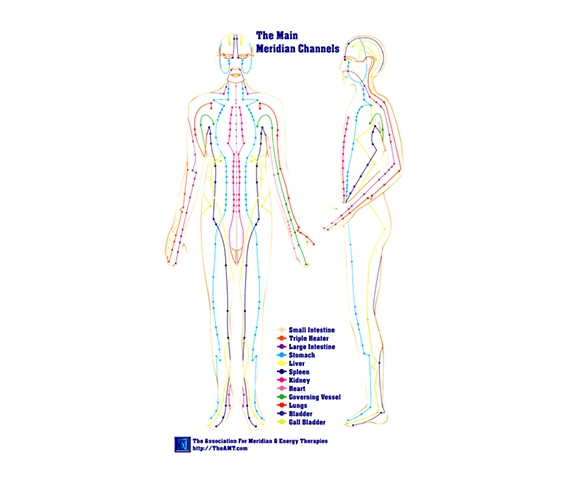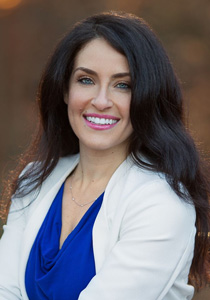Acupuncture is an effective form of Traditional Chinese Medicine (TCM) that has evolved into a holistic treatment method within our healthcare system. Practitioners of acupuncture have used this minimally invasive approach to help millions of people become healthier and stay well.
Acupuncture promotes natural healing by enhancing regenerative properties that support physical body functions, immunity, mental health, and emotional well-being. It is a safe, painless and an effective way to treat a wide range of medical conditions.
How does acupuncture work?
Acupuncture works by stimulating or putting pressure on specific points on your body. From a modern scientific perspective, stimulation of these points causes the release of nervous system chemicals in our brain, spinal cord, and muscles that help restore the body’s ability to heal naturally. These chemicals provide tremendous health benefits, whether it is influencing your body to heal more quickly or simply altering how you may be experiencing pain.
What should I expect at my appointment?
During the initial exam your acupuncturist will take a full health history and will ask questions regarding your health, symptoms, and lifestyle. An appropriate physical exam could also be conducted, which may include pulse, tongue, and abdominal evaluations. Gathering this information enables the practitioner to effectively diagnose and detect any specific imbalance of Qi (pronounced “chee.” is the vital energy that animates the body and protects it from illness) that may be contributing to a person’s health problems. This enables the practitioner to create a well-structured treatment plan.
Once imbalances of Qi are detected, the acupuncturist will place fine, sterile needles at specific acupuncture points located along your meridian pathways. After insertion, needles remain in place for 15 to 45 minutes. Needles may be manipulated so that their placement and positioning results in a feeling of deep ache, pressure or numbness, which is a normal and often a desirable finding (1). Between 5 to 30 needles are placed in a typical acupuncture procedure.
This safe and often painless insertion of these needles can unblock any obstruction and rebalance Qi in these pathways. When Qi can circulate freely throughout the body, it provides adequate nourishment to cells, organs, glands, tissues and muscles. This circulation can eliminate pain and restore balance, which can be the greatest relief when seeking optimal health and well-being.
What is Qi?
Acupuncture points activate the body’s innate healing abilities called Qi, pronounced “chee.” According to TCM, Qi is the vital energy that animates the body and protects it from illness. Qi flows through pathways called meridians and provides nourishment to the body’s cells, tissues, muscles, organs, and glands. When there is an imbalance or blockage in the flow of Qi, symptoms associated with a condition or illness may appear. Restoring the correct flow of Qi not only alleviates symptoms but can also support restoring organ system function to prevent disease progression.
How does Qi move?
Qi flows through specific pathways called meridians, which are invisible channels that connect acupuncture points. There are 12 primary and 8 extraordinary channels inside the body. Figure 1 shows the Meridian channel pathways in the body. Each channel is connected to specific organs and glands. Qi flow through these pathways is analogous to rivers flowing inside the body. When a river flows, it transports life giving water that provides nourishment to the land, plants, and people. Similarly, where meridian pathways flow, they bring lifegiving Qi that provides nourishment to every cell, organ, gland, tissue, and muscle in the body.

Figure 1: The twelve primary meridian channels connecting over 400 acupuncture points.
How is Qi disrupted?
When Qi becomes disrupted in one part of the body, the flow becomes restricted to other parts. This blockage of Qi can be detrimental to a person’s health, cutting off vital nourishment to the body, organs, and glands. Physical and emotional trauma, stress, lack of exercise, overexertion, seasonal changes, poor appetite, accidents, or excessive activity are among the many things that can influence the quality, quantity, and balance of Qi. Normally, when a blockage or imbalance occurs, the body easily bounces back, returning to a state of health and well-being. However, when this disruption is prolonged or excessive, or if the body is in a weakened state, illness, pain or disease can set in. This is where acupuncture can come in and help restore balance of Qi.
Acupuncture is recognized by leading national and international health organizations to be effective in the treatment of a wide variety of medical problems. Below are some of the conditions acupuncture can help with:
- Allergies
- Anxiety
- Arthritis
- Asthma
- Autoimmune disease
- Back pain
- Biliary colic
- Breech birth presentation
- Cancer care
- Carpal Tunnel Syndrome
- Colds and flu
- Depression
- Diabetes
- Digestive disorders
- Facial pain
- Fertility
- Fibromyalgia
- Gastritis
- Headaches/migraines
- Hypertension & Hypotension
- Irritable Bowel Syndrome
- Induction of labor
- Insomnia
- Knee pain
- Leukopenia
- Menopause
- Morning sickness
- Multiple Sclerosis
- Muscle tension and pain
- Nausea and vomiting
- Neck pain
- Neuropathy
- Opioid dependency
- Peptic ulcer
- Premenstrual Syndrome
- Post COVID
- Postoperative pain
- Pregnancy care
- Primary Dysmenorrhea
- Post-Traumatic Stress Disorder
- Radiation / Chemo reactions
- Renal colic
- Sciatica
- Side effects from cancer and cancer treatment
- Sprains
- Stress
- Stroke
- Seasonal affective disorder
- Tennis Elbow
- Tobacco addiction
- Weight loss
The overall outcome of acupuncture is a Whole Person restoration of health by correcting any imbalance in Qi flow and TCM organ functions. Positive health outcomes from Acupuncture include, but not limited to, a deeper state of calm or relaxation, reduction or eradication of pain, and an empowered sense of hope and well-being.
The healing and regenerative properties of acupuncture are truly amazing and the only way to find out if acupuncture is the perfect treatment for you is to give it a try.
Acupuncture is a safe, effective and drug-free therapy that can help address a wide range of common ailments and problems. Acupuncture therapy implores clean needle technique and maintains safety measures at all times that follow Council of Colleges of Acupuncture and Oriental Medicine (CCAOM), Occupational Safety and Health Administration (OSHA), and Center for Disease Control (CDC) guidelines.
Meet Dr. Diana Zitserman

Dr. Diana Zitserman is a board-certified, licensed Acupuncturist who specializes in Whole Person Wellness through the use of Acupuncture and Naturopathic care to treat health conditions related to chronic pain, stress and mood disorders, digestive issues, allergies, post-covid symptoms, women’s health, side effects from cancer treatment, and much more.
She is proud to offer private and community-based acupuncture services at ECHN’s Women’s Center for Wellness and John A. DeQuattro Cancer Center to all patients, community members, and supporting staff.
ECHN’s Women’s Center for Wellness offers acupuncture appointments, as well as a community acupuncture clinic specifically for cancer patients at the DeQuattro Cancer Center.
Call 860.533.4646, option 3, to learn more and schedule your appointment today!
Resources:
Information was adopted from Acupuncture Media Works, https://www.hopkinsmedicine.org/health/wellness-and-prevention/acupuncture, PMCID: PMC83140761
- Berger AA, Liu Y, Jin K, et al. Efficacy of Acupuncture in the Treatment of Chronic Abdominal Pain. Anesth Pain Med. 2021;11(2):e113027. Published 2021 Mar 17. doi:10.5812/aapm.113027

